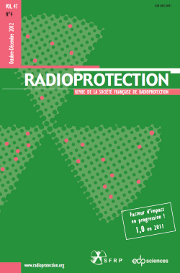Article contents
Bioavailability of anthropogenic radionuclides in mussels along the French Mediterranean coast
Published online by Cambridge University Press: 17 June 2005
Abstract
Within the framework of the Water Management Master plan, a bioindicator network (RINBIO) was deployed all along the French Mediterranean coast (1,800 km), using man-made cages containing mussels (Mytilus galloprovincialis) to assess contamination by heavy metals, persistent organic products and radionuclides. The caging technique compensated for the scarcity of natural shellfish stocks in significant parts of the coast and enable comparison between sites regardless of their physicochemical and trophic characteristics. Among the 103 stations of the entire program, 40 were selected for the measurement of anthropogenic radionuclides by high-efficiency gamma-spectrometry. Biometrics parameters of the each mussel samples, including `condition index' as an indicator of soft part growth, is correlated with radionuclides activities, to help correct raw data from differences in bioaccumulation between the various sites in relation to their trophic levels. A comprehensive picture of the distribution of radionuclides at such a large spatial scale is provided and the contribution of the Rhone River input, so far the main source for the coastal zone, is investigated.
- Type
- Research Article
- Information
- Copyright
- © EDP Sciences, 2005
- 7
- Cited by


